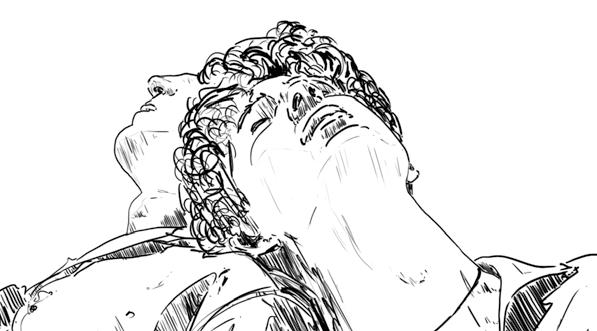
3 minute read
Dyslexia
JAMIE OLIVER, ORLANDO BLOOM, HOLLY WILLOUGHBY, WALT DISNEY, STEVEN SPIELBERG. WHAT DO YOU THINK ALL THESE CELEBRITIES HAVE IN COMMON? WELL, LET ME TELL YOU …
DYSLEXIA (NOUN.) A GENERAL TERM FOR DISORDERS THAT INVOLVE DIFFICULTY IN LEARNING TO READ OR INTERPRET WORDS, LETTERS, AND OTHER SYMBOLS, BUT THAT DO NOT AFFECT GENERAL INTELLIGENCE.
Advertisement
One in ten people are dyslexic, that’s 10% of the population, roughly 750,000,000 people on Earth. Dyslexia is a recognised disability under The Equality Act of 2010 and, compared to some other disabilities, dyslexia is fairly common, so why is it that there are still so many misconceptions about how it really affects people and the barriers that it presents?
In my opinion, there are two different types of boundaries that people with dyslexia face. The first is the actual learning difficulty, and the challenges that come alongside this, either at school, work or home. The second boundary is the many misconceptions and the lack of understanding that those with dyslexia will have to face at times. Both of these boundaries will affect almost everyone who has dyslexia, and whilst they seem aggravating, I try to look on the positive side of things. I believe that the main lesson that people with dyslexia will learn throughout their lifetime, is resilience - an attribute which is essential to twenty first century living.
The first boundary that I am tackling here is the learning side of things. Most will assume that people with dyslexia are ‘just a bit slow’ maybe even ‘stupid’, but this is NOT the case. Dyslexia is a language based disability which means that dyslexics have trouble with letters, words and sounding things out, but this definition is a very ‘umbrella-like’ like one. Each person with the disability will experience something slightly different, which is why it can be hard to generalise the problems that people with dyslexia have. The most common issues start at an early age, and are usually spotted in primary school. These can be; problems recognising words and spelling patterns, problems reading, or problems with processing information that gets given to you. This being said, there are still cases where people with dyslexia aren’t diagnosed until they are much older, whether that is in Secondary School, or sometimes even in adulthood.
I cannot speak for everyone, but to make things a bit clearer, I can try to explain how my own dyslexia affected me throughout the three years of studying for my GCSEs. In lessons, when information was given out, I either needed it written down, or for the teacher to repeat it a number of times. This is not because I am a forgetful person, but because one of the characteristics of my dyslexia is that I have a very slow processing speed; I have to listen to, or read things, multiple times before they change from random words in my mind to meaningful ones with purpose. In subjects such as English or Drama, when reading text aloud, I usually like to follow along with my ruler. This is so I do not lose my place when reading. I hear lots of comments from people assuming that dyslexics see words floating all over the page, which sometimes makes me laugh (we aren’t crazy!) but personally I do have to concentrate very hard on what I am reading, or the other words surrounding the ones I am focusing on will be added into the equation and I will say words from three lines down the page because my brain has seen them and is jumping ahead. The final example I will use is that I cannot work very well with big chunks of information. So when looking in textbooks, it took me a lot longer to find the information I needed and to understand it. Instead, when writing notes in class, or when revising, I would use a lot of colour and a lot of space to make things clearer. Now, in my A Levels, I have purchased my own textbooks so that I can underline and highlight key terms and phrases to make it easier for me to see the important bits. These are only a few, very select, personal examples of what people with dyslexia experience. Other troubles can be found with spelling, reading aloud or very slow reading and writing.
With all of this, and the large proportion of people who suffer with dyslexia in mind, there has been a lot of work and research into ways that dyslexics can be helped, because at this present time, there is no cure.






